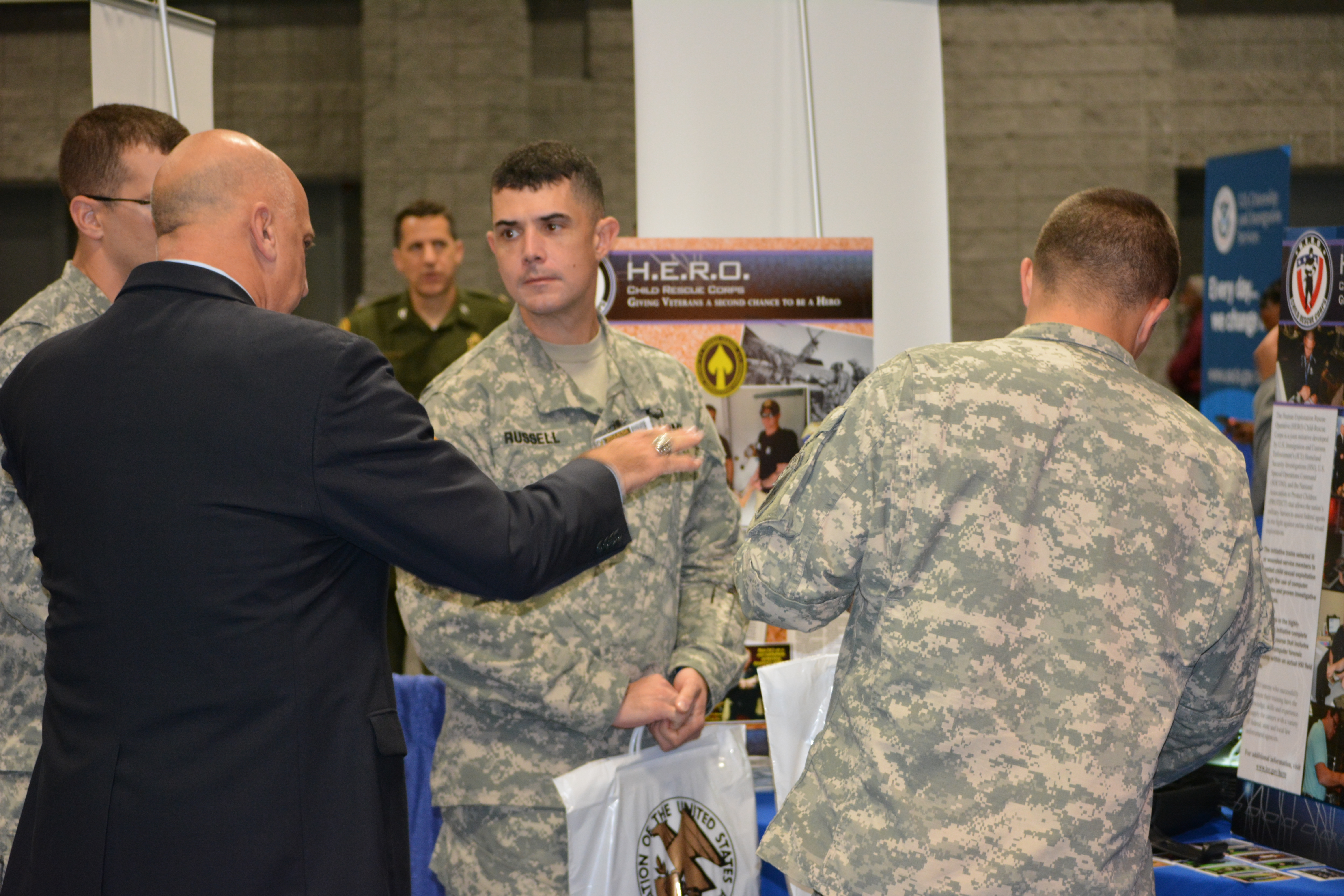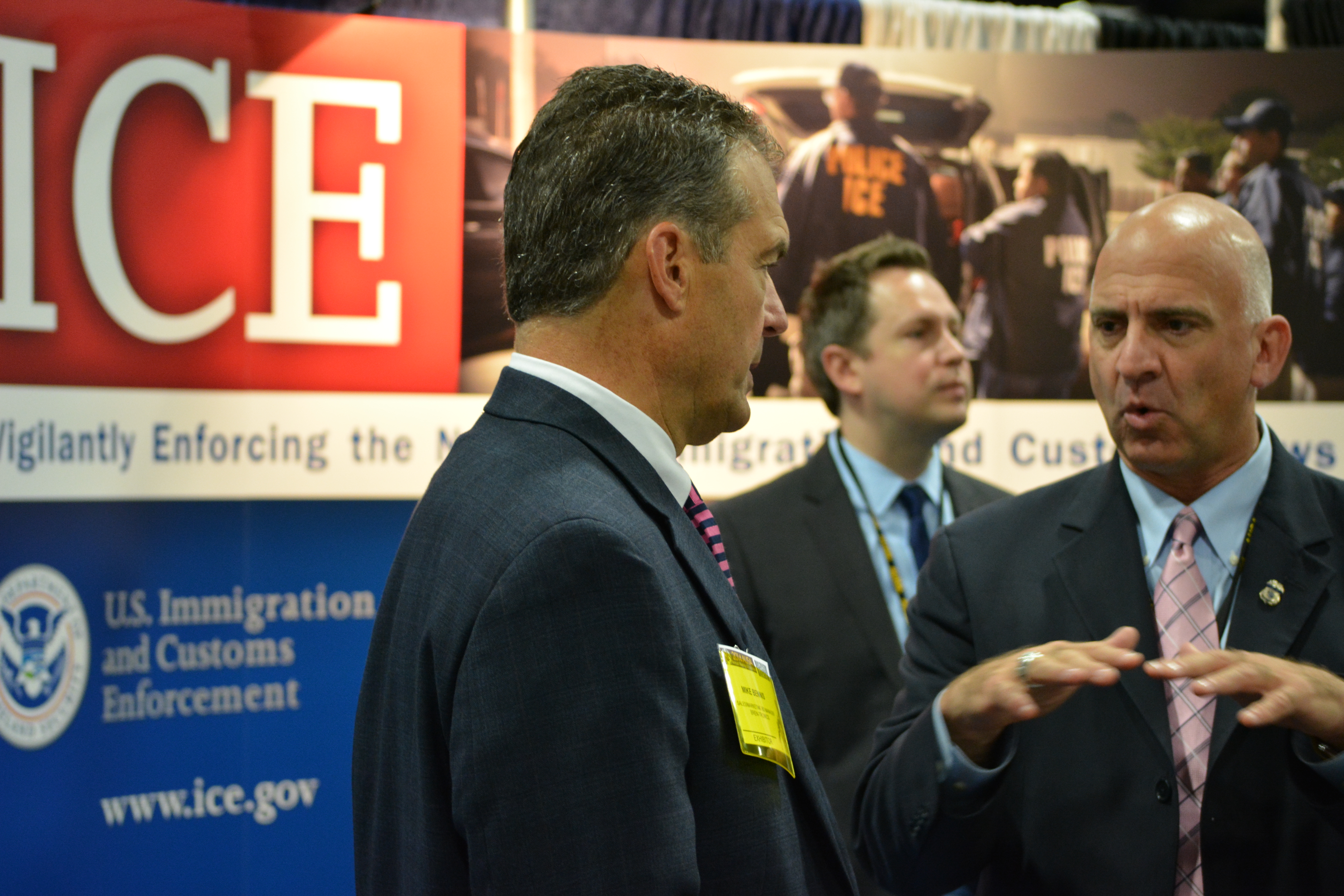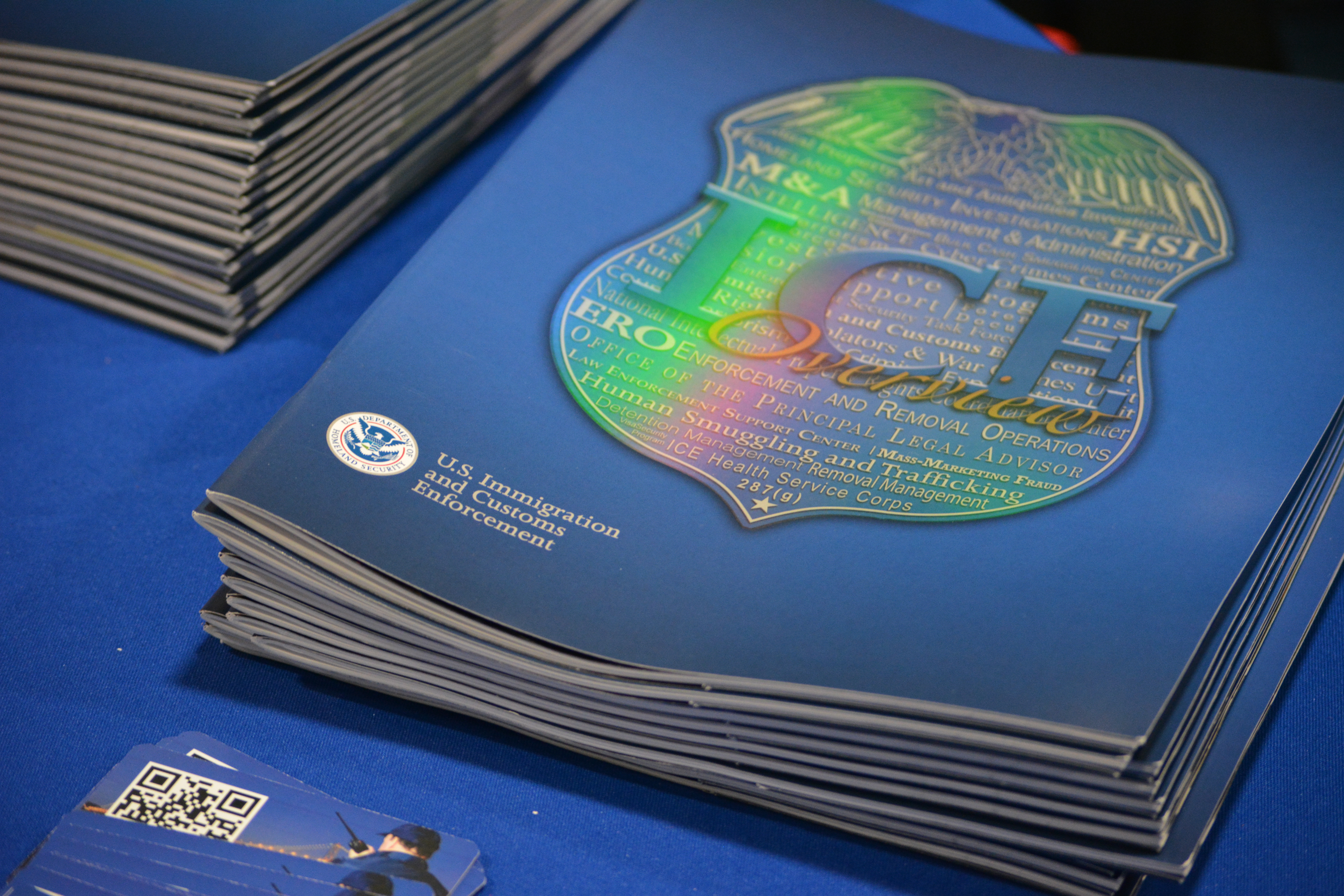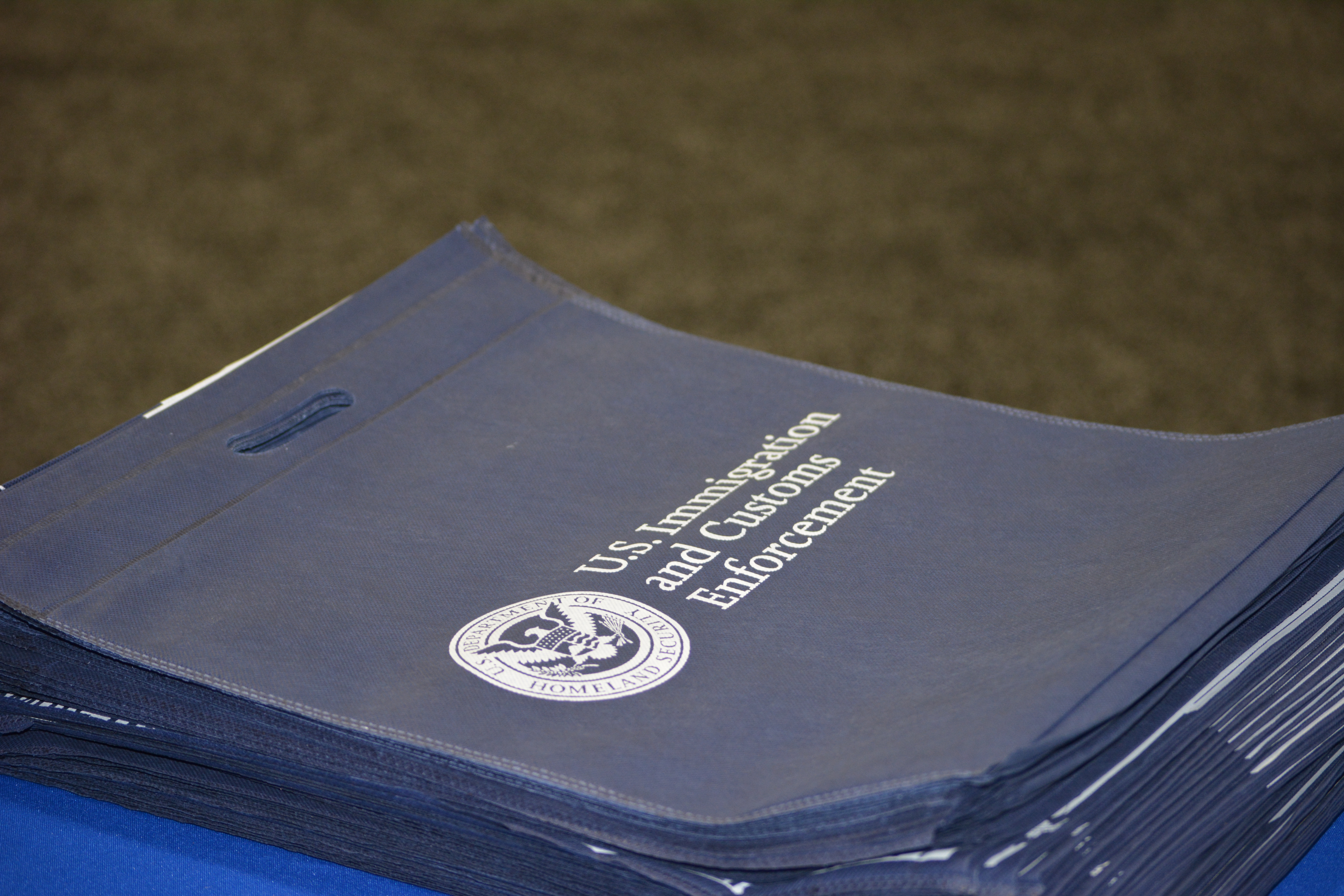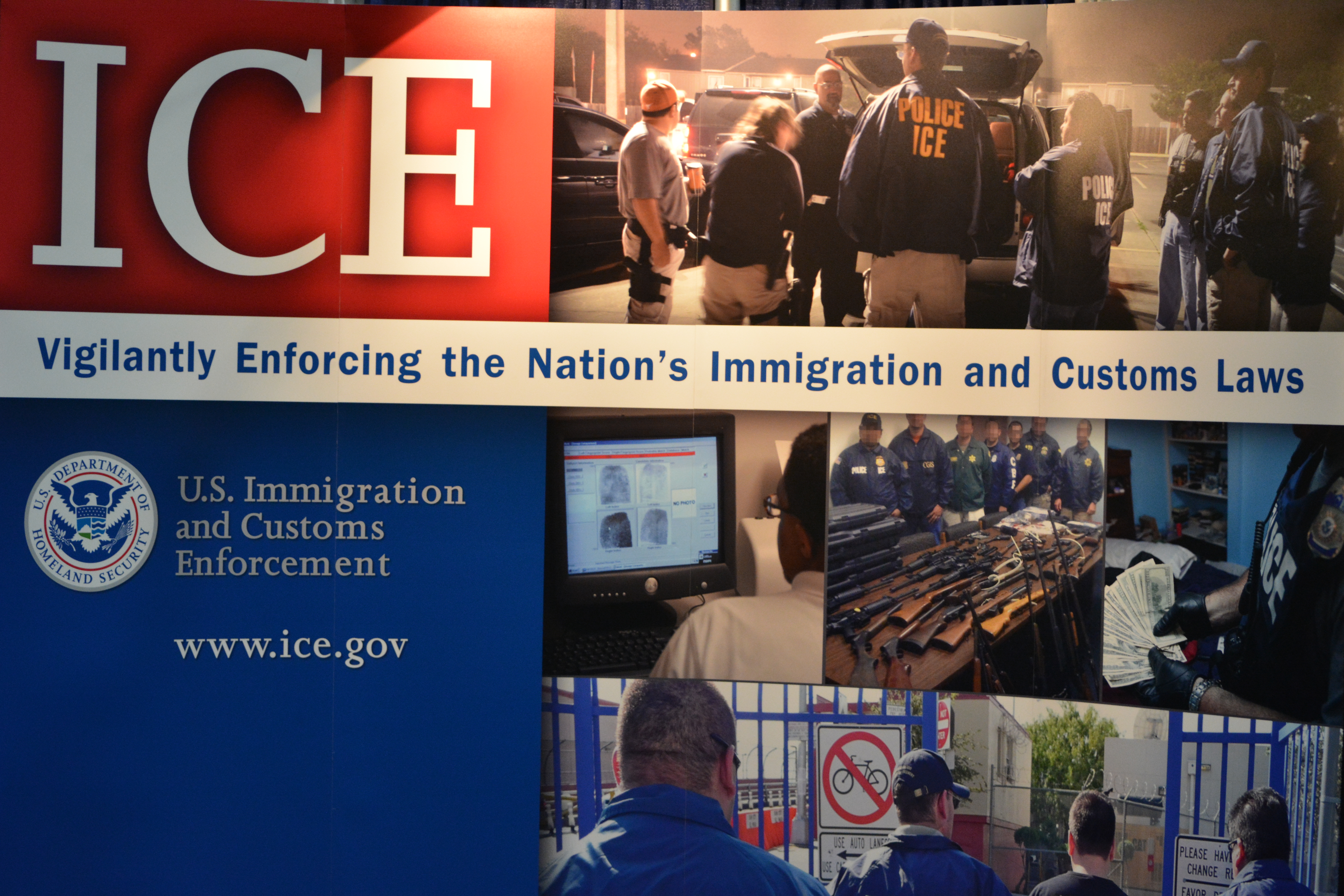ICE showcases commitment to veterans at AUSA meeting
For three days this week, thousands of current and former United States military members, along with civilian employees, exhibitors and vendors descended upon Washington, D.C. for the 2014 Association of the United States Army (AUSA) Annual Meeting & Exposition.
The annual meeting, held at the Walter E. Washington Convention Center, is the largest land power exposition and professional development forum in North America. The event consists of presentations, panel discussions on pertinent military and national security subjects, workshops and important AUSA business meetings.
In continuing with its commitment to the military, specifically veterans, U.S. Immigration and Customs Enforcement (ICE) had a sprawling presence at AUSA in the U.S. Department of Homeland Security pavilion that was aimed to highlight its latest efforts both in recruiting and employing veterans and how it’s integrated them not only in our law enforcement agencies components, but across ICE as a whole.
At its booth display, ICE highlighted the Human Exploitation Rescue Operative Child-Rescue Corps (HERO) program, Project iGuardian and the Operation Predator app. The HERO Program is designed for wounded, injured and ill Special Operations Forces to receive training in high-tech computer forensics and law enforcement skills, to assist federal agents in the fight against online child sexual exploitation.
For many veterans who were in attendance at ASUA, these initiatives are welcome news as many are looking to make the transition from active duty to federal, state or local law enforcement careers.
“The HERO program does two things that are unique when it comes to veterans. One is that it gives them employable skills, but it also gives them employment,” Arata said. “ICE was lucky enough to be able to employ our first class [last year] and we are now finding incredible employment opportunities not just within ICE, but with other law enforcement agencies for the second class.”
AUSA concluded Wednesday.


